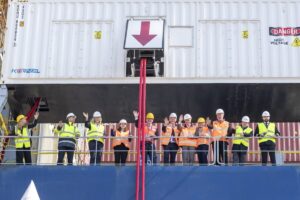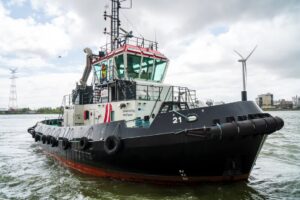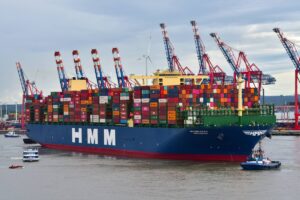Critical union workers for Canada’s West Coast ports have all but unanimously voted in favour of a call to strike amid ongoing contractual negotiations.
Talks between union workers, represented by the International Longshoremen Workers Union (ILWU) Canada, and the member companies of the British Columbia Maritime Employers Association (BCMEA), have persisted since 20 March.
The union represents over 7,000 dockworkers employed at the West Coast terminals in Canada, which are operated by the 49 member companies of the BCMEA.
According to CNBC, a call to strike was initiated after negotiations for a contract renewal reached a stalemate. Due to the lack of progress, the ILWU called for government intervention.
The mediation was approved and ran through the end of May as contract discussions were overseen by two government appointed mediators.
As per the Canadian labour law, a 21-day cooling off period mandatorily followed the mediation, which is when the ILWU Canada underwent its internal voting for a call to strike.
Votes were collected and concluded in two days from 9 to 10 June, before the ILWU Canada informed the BCMEA of a landslide 99.24 per cent result in favour of striking, CNBC reported.
A strike can take place no sooner than 24 June, however, as both parties agreed to refrain from taking action before 21 June, and a 72-hour notice period must be filed for a strike.
Imminent strikes in Canada’s West Coast could see several key ports severely affected, including the Ports of Vancouver and Prince Rupert.
A spokeswoman for the Vancouver Fraser Port Authority stated that approximately 90 per cent of cargo moving through the Port of Vancouver is Canadian trade, CNBC reported.
Potential strikes in Canada may further stifle trade across ports in the US West Coast, a region that has currently been plagued with a flurry of operational disruptions.
READ: US West Coast ports face $5 billion worth of delays
As per the Vancouver Port Authority, around 15 per cent of container trade passing through the Port of Vancouver involves shipments to, or from the US, CNBC reported. Additionally, approximately 2 per cent of US international laden imports that arrive at West Coast ports annually are processed through the Port of Vancouver.
Prince Rupert Port Authority’s Vice President of Trade Development & Real Estate, Brian Friesen, stated that roughly two thirds of the imported containers the Port of Prince Rupert handles, are set for the US ports via rail.
Yet, in efforts to mitigate trade disruptions in Canada, Canadian shippers may seek to reroute its cargo to the Port of Seattle, CNBC reported.
This may, however, prove to be problematic as the Port of Seattle became the latest US West Coast port to be afflicted with operational disruptions and work stoppages that resulted in its closure on 10 June.
READ: Pressure mounts on White House as US West Coast strikes persist
Canada’s West Coast faces the additional challenge brought on from the severe droughts at the Panama Canal, should they choose to consider alternative trade routes to the East Coast.
The water levels in the canal have reached unprecedented lows, which has led Nathan Strang, the Head of Ocean Fresh at Flexport Inc., to express concerns that it could result in a 40 per cent reduction in cargo flow through the canal.
This development in the Panama Canal adds further complexity to the situation for Canada’s West Coast ports.









